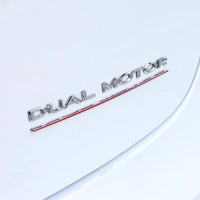The Tesla Model 3 is undeniably a trailblazer in the electric vehicle (EV) market, known for its innovative design, powerful performance, and cutting-edge technology. However, like any complex piece of technology, the Model 3 is not without its occasional hiccups. Understanding the most common issues that Model 3 owners have reported can help you navigate them more effectively and maintain the vehicle's performance and reliability. In this post, we’ll cover some of the typical issues faced by Model 3 owners and their potential solutions to keep your driving experience smooth and enjoyable.
1. Software Glitches
Tesla’s frequent over-the-air software updates keep the Model 3 on the cutting edge, often enhancing performance and adding new features. However, these updates can occasionally introduce unexpected bugs, resulting in system freezes laggy interfaces, or malfunctioning of key features.
Solution:
- Regularly check for new updates and apply them as soon as they are released.
- If a serious software issue occurs, try a soft reboot by holding down both scroll buttons on the steering wheel until the screen restarts.
- For persistent problems, contact Tesla’s customer support to diagnose and fix the issue remotely.
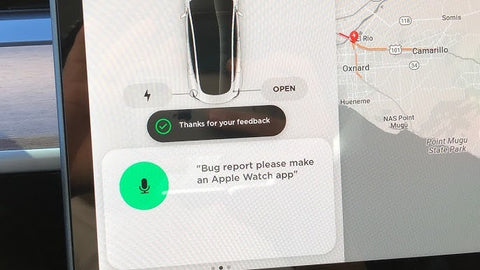
2. Autopilot Quirks
Tesla’s Autopilot is a game-changer in semi-autonomous driving, but it’s not perfect. Some drivers have reported abrupt disengagements, over-sensitivity to road conditions, or failure to recognize certain lane markings.
Solution:
- Always maintain awareness when using Autopilot, keeping your hands on the wheel and being prepared to take over control.
- Keep the cameras and sensors clean for optimal performance, and follow Tesla’s guidelines for using Autopilot features safely.
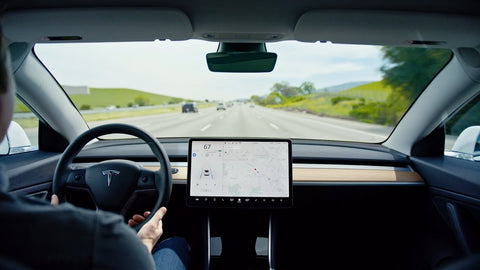
3. Charging Difficulties
While Tesla’s Supercharger network is expanding rapidly, Model 3 owners still face occasional charging challenges, including incompatible third-party stations or slow charging times.
Solution:
- Plan your routes with charging stops in mind, leveraging the built-in trip planner that optimizes charging locations.
- Consider installing a home charging setup for reliable daily recharging.
- If using a third-party charging station, verify compatibility through the station’s network or Tesla’s app.
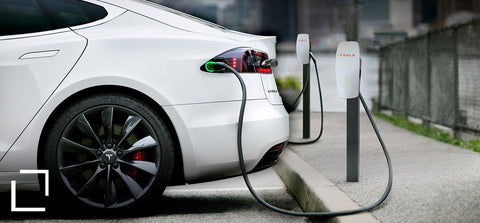
4. Door Handle Malfunctions
The Model 3’s flush door handles contribute to its sleek design, but they can sometimes fail due to faulty sensors or freezing in cold climates.
Solution:
- If the door handles fail to present, try a manual release by applying pressure to the handle’s pivot point.
- In cold weather, activate the door handle heater feature if available, or gently tap the handle to break any ice.
- For persistent mechanical issues, contact Tesla service for adjustments or replacements.
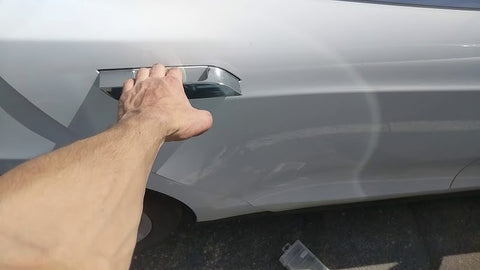
5. Connectivity Concerns
Internet connectivity is crucial for several Tesla features, such as navigation, streaming, and remote app control. Intermittent connectivity can lead to features becoming temporarily unavailable.
Solution:
- Ensure your vehicle is in an area with good cellular reception.
- Connect to Wi-Fi whenever possible, especially when parking at home, to ensure software updates and map data are downloaded seamlessly.

6. Wind Noise and Panel Gaps
Tesla has faced scrutiny over build quality inconsistencies, with some Model 3 owners reporting issues like wind noise at higher speeds or misaligned body panels.
Solution:
- For wind noise, consider installing additional seals or soundproofing kits available from aftermarket providers.
- Misaligned panels can be corrected by scheduling a service appointment. Tesla’s service centers will usually address these issues under warranty.
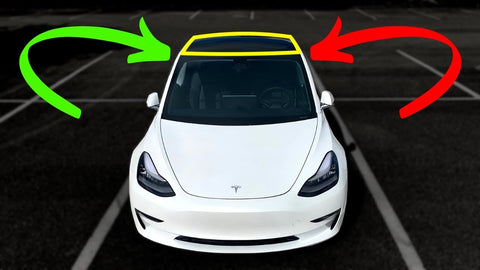
7. Battery Degradation
Battery degradation is a natural process for any EV, but it can be a concern for long-term owners. Some Model 3 drivers have reported quicker-than-expected battery capacity loss, which impacts range and performance.
Solution:
- Avoid frequent Supercharging sessions and deep discharges.
- Keep the battery charged between 20% and 80% for daily use.
- For long-term storage, maintain the battery at around 50% to minimize degradation.
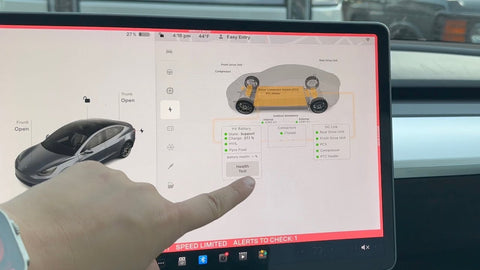
8. HVAC and Climate Control Issues
Some owners have reported problems with the Model 3’s climate control system, such as erratic temperature regulation or unusual noises from the HVAC system.
Solution:
- Perform a cabin air filter replacement if you notice poor airflow or unusual smells.
- If the problem persists, a hard reboot of the system or a visit to a Tesla service center may be necessary.
9. Phantom Braking Problems
Phantom braking, where the car brakes unexpectedly for no apparent reason, can be unnerving and dangerous. This issue is often linked to the car’s sensors misreading certain situations, such as shadows or road signs.
Solution:
- Keep your Tesla’s cameras and radar sensors clean to ensure accurate readings.
- If phantom braking becomes frequent, report the issue to Tesla for further diagnostics and software updates.
Most Common Issues with the 2023 Tesla Model 3
Although it is one of the most widely purchased electric cars, the Tesla Model 3 is not perfect. Some of the most often mentioned complaints from Tesla Model 3 customers are as follows:
- Suspension Problems: Some Model 3 users have complained of strange noises, including creaking, clunking, and other suspension-related sounds. Broken or worn ball joints are a common culprit in this situation.
- Paint Problem: There have been reports of paint issues with Tesla Model 3s, including peeling and chipping. This is probably because the firm is utilizing a novel painting technique that has not been subjected to as much scrutiny as more conventional approaches.
- Build Tesla Quality Issue: Misaligned body panels and loose trim pieces are only two examples of the build quality faults that some Model 3 owners have observed.
- Software Issues: Tesla vehicles are continuously receiving software updates, however, these updates might cause complications in rare cases. The infotainment system, Autopilot, and other software-related features of the Model 3 have reportedly been problematic for certain customers.
- Range Anxiety: The Tesla Model 3 has a long range, but some owners have reported that the range is not as good as advertised. Reasons for this include how the vehicle is driven, the weather, and the usage of air conditioning or heating.
Not only are these issues not exhaustive, but they are among the most often reported with the Tesla Model 3. Not all Model 3s will experience these problems, and some owners may have other issues that are not listed here.
Some preventative measures to take with your Tesla Model 3 are listed below.
- Get your car regularly serviced. This will help to identify and fix any potential problems before they become major issues.
- Keep your car's software up to date. Tesla is constantly releasing new software updates that can fix bugs and improve performance.
- Be careful when driving in extreme weather conditions. The Model 3's range can be affected by cold weather, and the car's battery can also be damaged by extreme heat.
- Take your car to a certified Tesla repair shop if you experience any problems. This will ensure that the problem is fixed correctly.
The 9 Biggest Complaints About The Tesla Model 3 FAQs (Frequently Asked Questions)
Body components that don't line up
Misaligned body panels are another frequent problem with Tesla cars. There are a number of potential causes, including faulty construction, rough handling in transit, and shoddy set-up. Cars with misaligned bodies are not only unattractive but also dangerous and difficult to control. In most cases, Tesla's body misalignment repairs are free, adding to the company's stellar reputation for customer care.
Issues with Sudden Unintended Acceleration
Sudden, unexpected acceleration is a major problem that has been documented in a variety of cars, including Teslas. When the automobile speeds up unexpectedly, the driver is not the one who pressed the accelerator. This can lead to mishaps, some of which may be fatal. Uncertain elements in electric vehicles, such as malfunctioning sensors, software faults, and mechanical difficulties, are suspected to contribute to rapid unintended acceleration. Some Tesla customers continue to experience the issue of rapid unexpected acceleration, despite Tesla's distribution of software upgrades meant to fix the problem.
Could a Faulty Cruise Control Function Be the Issue?
Is There a Problem With the Cruise Control? A malfunctioning cruise control system is a real possibility. It's possible to keep a constant speed with the help of a technology called adaptive cruise control only. Unexpected acceleration or braking might result from a malfunction in the cruise control system. This may play a role in both phantom braking and unexpected bursts of speed.
Service Issues
Some Tesla owners have complained about the difficulty of getting their vehicles repaired, despite the company's well-deserved reputation for excellent customer care. Some customers have complained about extended wait times for service appointments and subpar quality of care. Although Tesla is aware of the problem, it is trying to fix it.
30,000-Mile Update
The 30,000-mile Update is a significant software upgrade for all models of the Tesla Model 3 that aims to enhance the vehicle's functionality and performance. However, the 30,000-mile upgrade has been problematic for several owners. Phantom braking, touchscreen malfunctions, and battery concerns have all been reported. Although Tesla is striving to address these concerns, they remain a reality for certain customers.
Touchscreen Issues
Problems with the Tesla Model 3's Touchscreen The Model 3's infotainment system is a massive touchscreen. Touchscreen issues, such as quality issues such as freezing, latency, and unresponsiveness, have been observed by some owners. These issues might make it impossible to use the car's capabilities, which is highly annoying. Although Tesla is striving to address these concerns, they remain a reality for certain customers.
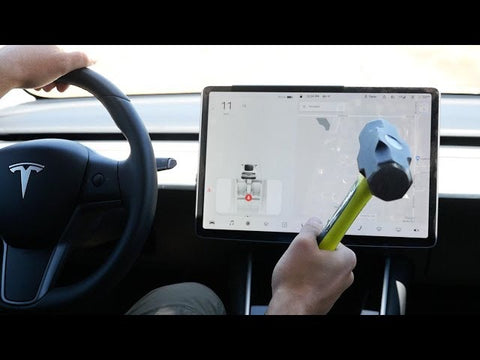
Battery Replacement Issues
Problems with the Tesla Model 3's lithium-ion battery have been reported. The lifespan of lithium-ion batteries can be shortened due to gradual deterioration. Some Tesla owners have complained that their batteries are wearing out far faster than predicted. This can be expensive since it may need replacing the battery. The Model 3's battery life is still a concern for some customers, despite Tesla's efforts to address the problem.
The Model 3 Tesla's General Pros and Cons:
Pros:
- Prolonged view of something
- Quickstarts
- Superior innovation
- Clever layout
- Top marks for security
Cons:
- Expensive
- Scarce resources
- Some hiccups with quality control
- Concerns about the Service Provided
- Battery issues may arise.
Conclusion
The Tesla Model 3 is, without a question, a state-of-the-art autonomous electric vehicle with extraordinary technology and performance. Like any advanced technology, though, it is not without its problems. The Tesla Model 3's advanced safety features, including automatic emergency braking, contribute to its reputation for top-notch security on the road. Model 3 users have reported a wide variety of faults, including but not limited to software bugs, autopilot idiosyncrasies, charging problems, and body alignment concerns. While not every Model 3 will have these problems, knowing about them and being prepared for them ahead of time will make for a more pleasant ownership experience.
 :
:  :
: 


